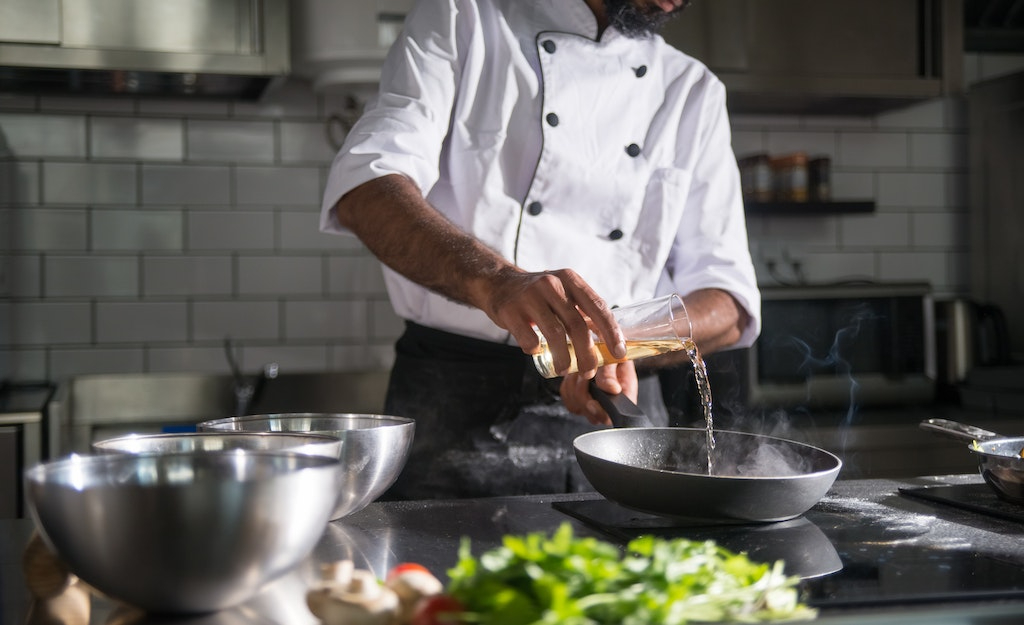Catering: The green turning point as a chance for growth

“Green catering” means implementing actions and managing a business in such a way as to reduce impacts on the environment, while increasing economic benefits. For those who have a restaurant business, the issue of sustainability and green practices has become crucial. As a matter of fact, many restaurants have opted for a zero-waste cuisine and have now adapted their activities to a new style attentive to energy waste.
An authoritative voice on the world scene is certainly that of the English chef Douglas McMaster, who works in a perfect union of haute cuisine and zero waste. In fact, the chef uses only kilometre zero products and delivery without packaging, with a keen eye on their environmental impact.
The example of the English chef is also an inspiration for small and medium-sized businesses that are becoming more and more sensitive to the subject. There are many easy-to-apply measures that can immediately give a green turn to restaurants.
Tools and services with a keen eye on environmental impact
Simple everyday adjustments really make a difference. Choices made by many restaurateurs are influencing more and more colleagues towards a true green turning point. These include the use of products such as oil or cooking spray as a parchment paper alternative in order to reduce waste, sourcing local, raw materials, favouring fish and meat from sustainable farms, and installing lighting systems with LEDs (powered by photovoltaic panels). But not only this, the choice of serving only filtered water can also make a huge difference, since in this way it’s possible to reduce plastic and glass waste.
From restaurant furniture to kitchen tools in biodegradable material, there are so many eco-friendly alternatives. By involving the dining room and kitchen staff, restaurateurs who want to give an eco-sustainable address to their business can really make a difference for the planet. A catering business converted to zero impact can save about 20,000 trees a year every year. Moreover, some restaurateurs have also invested to be able to count on the self-production of flours through small stone mills.
More eco-sustainability for more successful businesses: Looking for Green Stars
So, it can be argued that eco-sustainability is an increasingly important feature for successful businesses, so much so that the prestigious Michelin Guide has highlighted the virtuous behaviour of many businesses that have chosen an increasingly sustainable cuisine. In fact, since 2021 the Guide has assigned “Green Stars” to activities that have stood out for their sensitivity to environmental impact and attention to the needs of employees.
The international director of the Michelin Guide, Gwendal Poullennec, explained that for the award of a Green Star, the inspectors of the Guide make thorough investigations and collect a lot of information that goes beyond the single dish proposed. These investigations focus mostly on the enhancement of the territory, the fight against food waste, and careful attention to reducing the use of plastic.
The aim of the Guide, as a protagonist voice in the culinary scene, is to promote among the general public the chefs who have made green choices, increasing the awareness of an entire sector and creating an idea of sustainable gastronomy to start a kind of revolution.
The editorial unit

























Facebook
Twitter
Instagram
YouTube
RSS